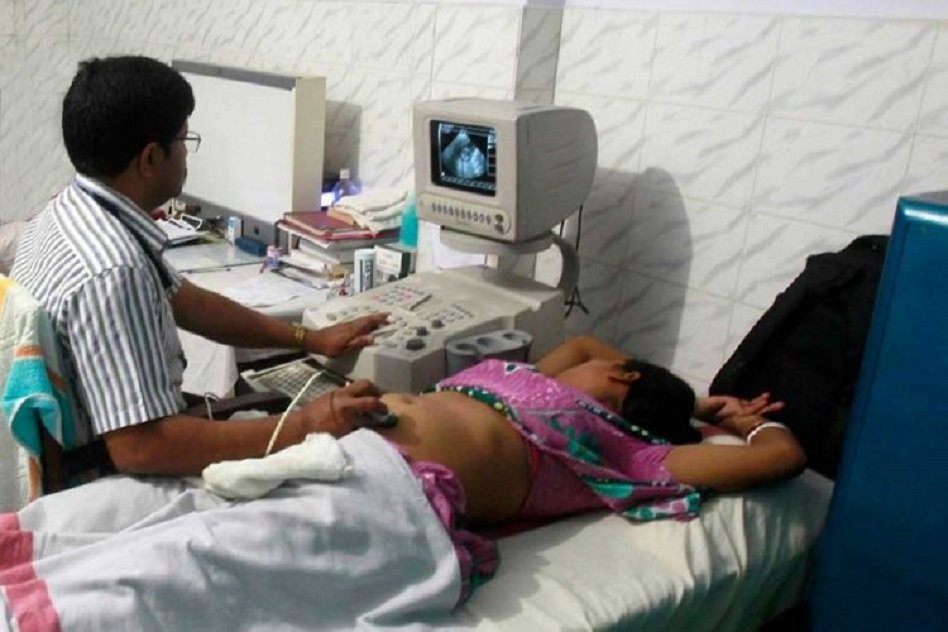
Supreme Court Rejects Plea To Abort A 26-Week-Old Foetus With Down Syndrome
1 March 2017 8:53 AM GMT
A 37-year old Maharashtra woman will be forced to deliver her baby with serious brain abnormalities three months from now, owing to India’s primaeval abortion law.
The Supreme Court on Tuesday rejected her plea to abort her 26-week-old foetus which, reports show, suffers from ‘Down Syndrome’ and may be born with physical and mental abnormalities. Despite sympathising with the mother, the SC said that a pregnancy cannot be terminated after it crosses the 20-week mark, citing the 46-year-old Medical Termination of Pregnancy (MTP) Act.
The apex court order was passed by a bench comprising of Justices S A Bobde and L N Rao, who based their decision on the medical report prepared by a group of senior doctors from Mumbai’s KEM Hospital. According to the report, the 26-week-old foetus is afflicted with Down Syndrome and there is a possibility that the child may be born with some physical and mental abnormalities. It, however, said there was no threat to the life of the mother or the foetus.
Under the MTP Act, termination of pregnancy is allowed after 20 weeks only in extreme cases where the continuation is likely to cause grave injury to the mother’s health and/or increase or induce a risk of abnormalities in the child. However, in this case, hospital reports held that the baby has the chance of survival, with the possibility of some mental and physical disorders. But there is no physical risk to the woman’s life.
The Medical Termination of Pregnancy (Amendment Bill) is pending since June 2014
The long-awaited MTP (Amendment Bill) which proposes to extend the legal limit for termination of pregnancy from the present 20 weeks to 24 weeks is pending for more than 2 years.
In half a dozen separate cases the apex court had granted termination in advanced pregnancy where the mother’s life was in danger. In February, a 22-year old woman was allowed abortion as her 23-week-old foetus lacked kidneys, besides having multiple anomalies. Another woman from Mumbai was granted permission in January this year to abort her 24-week-old foetus as it was malformed and also posed a risk to her life. In a landmark victory for Indian women, the SC had also granted termination of a 24-week-old foetus of a rape survivor in July last year as it suffered from brain abnormalities.
However, in this particular case, when the Maharashtra woman’s lawyer pleaded with the bench of justices S A Bobde and L N Rao for a special consideration on humanitarian grounds, the judges said, “It is sad that the child may suffer from physical and mental challenges and it’s unfortunate for the mother but we can’t allow an abortion. We have a life in our hands and we are also tied down by a law”. Despite the woman’s request that the child will not be able to lead a normal and healthy life, the bench added that though children suffering from Down Syndrome are undoubtedly less intelligent, they are fine people.
There is already a PIL in the SC seeking to extend the legal limit of abortion from 24 weeks to 28 weeks
A Public Interest Litigation (PIL) was filed by a victim of the existing law and doctor Nikhil Datar who had challenged the 1971 act, terming it “irrational, out-dated, unconstitutional and a violation of women’s rights to equality, health, and life”.
The PIL is backed by The National Commission for Women, the Federation of Obstetricians and Gynaecologists of India (FOGSI), the international community, and several other women’s rights groups citing the Act’s provisions that violate a woman’s right to physical integrity.
Abnormalities in a foetus are detected after the woman loses on the MTP cut-off line as pregnant women undergo tests in the 18th week and the results are generated in three weeks.
The WHO estimated that out of the 26 million births that occur in India every year, approximately 2-3 per cent foetuses (5-6 lakh) have a severe congenital or chromosomal abnormality. To protect the mental or physical health of a pregnant woman, most nations including the US, UK, China which have legalised abortion, allow termination after 20 weeks in case of severe foetal abnormalities.
The Indian Supreme Court needs to recognise the shortcoming of the present MTP Act and effectively overhaul the law.
 All section
All section













